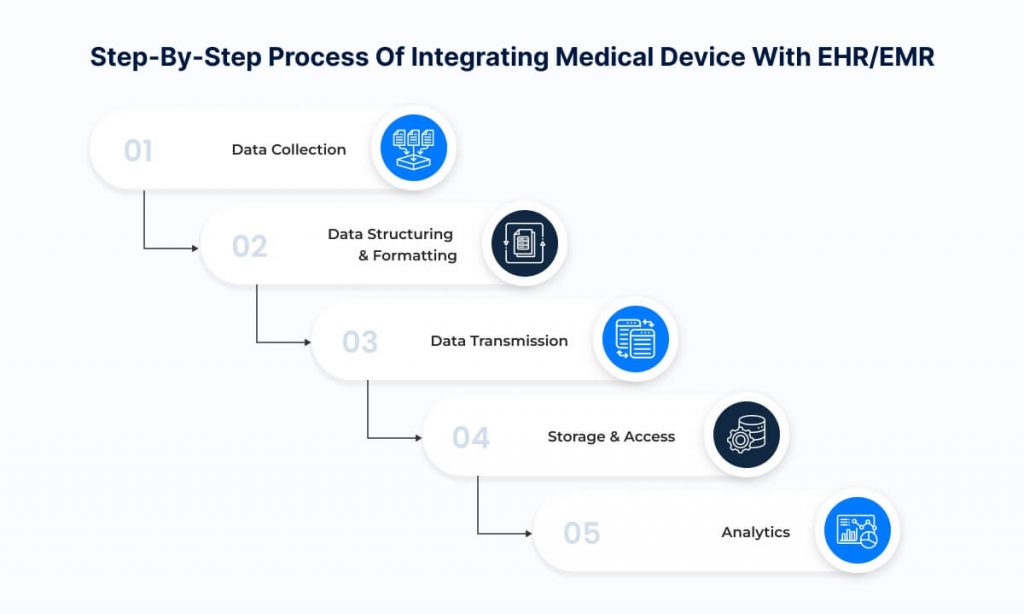Patient Health Information (PHI) is any data related to a patient’s health, medical treatment, or payment history that can identify them. This includes medical records, test results, prescriptions, and details like names and insurance information. Because this information is sensitive, it must be kept very private and safe.
The Health Insurance Portability and Accountability Act (HIPAA) sets rules to protect PHI. It requires healthcare providers and organizations to use strong safeguards that cover administrative, physical, and technical areas. These rules focus on three main parts:
- Confidentiality: Only people who are allowed can see PHI.
- Integrity: PHI must be accurate and complete.
- Availability: Authorized people must be able to access PHI when needed.
If these rules are broken, there can be big fines. For example, fines can reach $50,000 per violation, and repeated problems can total $1.5 million a year. This shows how important it is to follow good practices when handling PHI.
The Importance of Encryption in PHI Security
Encryption is one of the best ways to protect electronic PHI (called ePHI). It changes readable patient data into a secret code that only people with the right key or password can unlock.
HIPAA calls encryption an “addressable” rule. This means healthcare groups must think about it and explain why they use it or use other controls that work the same. Today, encryption is very important because there are many data breaches and cyberattacks. Not using encryption can cause serious trouble. One example is the 2020 case of the University of Rochester Medical Center (URMC). They were fined $3 million after devices with unencrypted ePHI were stolen. This shows what can happen when encryption rules are not followed well.
Best Practices for Secure Sharing of PHI Using Encryption
1. Encryption of Data at Rest
Data at rest means all stored information like electronic health records, images, and patient files kept on computers, servers, or mobile devices. Protecting ePHI in storage involves using encryption techniques such as:
- AES-256 (Advanced Encryption Standard with a 256-bit key): This is a common encryption standard recognized by government groups. AES-256 uses a strong key to protect data from being cracked easily.
- Full Disk Encryption (FDE): Encrypts everything on a storage device, protecting all files and system data. This is very important for laptops and portable devices that can be lost or stolen.
- Virtual Disk Encryption: Encrypts specific virtual storage, which is useful in cloud environments or servers.
Using encryption on stored data helps reduce the risk of unauthorized access if devices are lost or taken.
2. Encryption of Data in Transit
When PHI is sent electronically between healthcare providers, insurers, or cloud services, it should be protected by strong encryption to stop it from being intercepted.
- Transport Layer Security (TLS) with AES-256 Encryption: TLS is the preferred method to keep ePHI secure during transmission. This includes emails, websites (HTTPS), and messaging. NIST recommends using TLS 1.2 or newer.
- Always use secure channels and avoid sending PHI over open or unsecured Wi-Fi networks.
- Make sure to verify the recipient before sharing PHI to prevent data from leaking to the wrong person.
Healthcare groups need strict rules to stop PHI from being sent without encryption.
3. Access Controls and Regular Audits
Encryption alone is not enough to keep data secure. Access controls decide who can see or handle PHI inside the organization.
- Role-Based Access Control (RBAC): Gives access based on a worker’s role, so they only get the permissions needed for their job.
- Least Privilege Access Principle: Limits access to the smallest amount needed to do the work, lowering the risk of PHI being exposed to unauthorized users.
- Regular checks and monitoring help find unwanted access or strange actions, so problems can be fixed fast.
- When staff leave or don’t need access anymore, their permissions should be removed immediately to lower insider risks.
4. Effective Staff Training on PHI Security
Employees are very important in keeping PHI safe. Training should happen regularly and cover topics such as:
- HIPAA rules and company policies.
- How to correctly use encryption tools and secure communication methods.
- Examples from real situations showing possible risks.
- The right ways to handle and send ePHI.
Often, breaches happen because employees do not know the rules well. Ongoing training helps prevent this.
Managing Encryption Keys and Third-Party Compliance
Encryption works well only if encryption keys and certificates are managed safely.
- Keys should be changed regularly to stop them from being compromised.
- Secure places are needed to store keys to keep unauthorized people out.
- Using the same keys forever can lower security and should be avoided.
Healthcare providers often work with third parties like billing companies, cloud services, and IT vendors who may access PHI. HIPAA requires these groups to sign Business Associate Agreements (BAAs). These agreements make sure partners follow HIPAA rules on encryption and security.
Providers can be held responsible if a partner causes a breach. Regular checks of partner security practices are important. Vendors that use strong encryption like AES-256 and TLS for data storage and transfer are more reliable for keeping data safe.
Statistics and Case Examples Relevant to Providers in the U.S.
Healthcare groups in the U.S. face many threats from cyberattacks and mistakes inside the system. The University of Rochester Medical Center case showed what can happen if encryption rules are ignored. After devices with unprotected patient data were stolen, they had to pay a $3 million fine. This case reminds health providers to keep data safe.
Other common problems include unsecured email systems and old encryption setups on older devices. Providers must do regular checks to find and fix these issues.
AI-Driven Automation and Workflow Enhancements in Securing PHI
New AI tools and automation help healthcare groups handle PHI safely and efficiently. For example, Simbo AI offers phone automation and answering services for clinics.
AI for Front-Office Automation
Simbo AI’s systems can check who is calling and confirm patient identities. This lowers risks from human mistakes when sharing information. Automated calls reduce the workload on staff and help control access to sensitive information during phone calls.
Enhanced Security Through Automation
Automated systems can make sure encryption rules are followed every time. This keeps PHI safe during communication by using standards like AES-256 and TLS. This helps avoid mistakes that happen when done manually.
Integration with IT Systems
AI tools can connect to Electronic Health Record (EHR) systems and other databases to apply encryption rules based on jobs and workflows. AI can also watch for strange access or data transfers, helping with audits and quick responses.
Continuous Learning and Adaptation
AI systems can learn from ongoing data about access patterns, employee actions, and communication logs. This helps spot possible breaches before they happen. This creates stronger security for the whole organization.
Final Thoughts for Healthcare Providers
Healthcare providers in the United States, including clinic managers and IT staff, face growing pressure to keep patient data safe while running their practices well. Meeting HIPAA rules means using encryption for PHI at rest and while transferring it. It also means using access controls, staff training, risk checks, and checking vendors.
Using AI tools like those from Simbo AI can help providers meet these rules with fewer mistakes and better results.
Following these best practices helps healthcare groups protect patient privacy, avoid fines, and support safer care.
Frequently Asked Questions
What is Patient Health Information (PHI)?
Patient Health Information (PHI) includes any identifiable information related to a patient’s health status, medical treatment, or payment history. It encompasses medical records, test results, prescription history, and demographic details such as name, address, and insurance information.
Why is secure sharing of PHI crucial in healthcare?
Secure sharing of PHI is vital to maintain patient trust, protect sensitive data from unauthorized access, and comply with legal requirements like HIPAA. It safeguards against breaches that can lead to identity theft or medical fraud.
What role does HIPAA play in protecting patient information?
HIPAA sets national standards for safeguarding PHI, requiring healthcare providers to implement administrative, physical, and technical safeguards to ensure the confidentiality, integrity, and availability of patient data.
What are the key penalties for non-compliance with HIPAA?
Non-compliance with HIPAA can lead to significant penalties, including fines of up to $50,000 per violation and potential criminal charges. Repeated violations may result in penalties up to $1.5 million per year.
What are best practices for securely sharing PHI?
Best practices include ensuring PHI is securely stored using encryption methods such as AES-256, knowing guidelines for accessing and transmitting PHI, and implementing access controls based on least privilege principles.
How can encryption methods secure PHI?
AES-256 encryption is recommended for ePHI as it provides robust protection by encrypting data both at rest and during transmission, thereby preventing unauthorized access and breaches.
What guidelines should healthcare providers follow for transmitting PHI?
Healthcare providers should use secure communication channels like encrypted emails and secure messaging platforms, verify recipient identity, and avoid transmitting PHI over unsecured networks.
How can organizations implement effective access control for PHI?
Organizations should enforce least privilege access principles, use role-based access controls, conduct regular audits, and immediately revoke access for employees who no longer require it.
What types of technologies can enhance secure PHI sharing?
Technologies include advanced encryption methods, secure storage solutions, and secure messaging platforms that facilitate confidential and compliant exchanges of patient health information.
How can healthcare staff be effectively trained on PHI security?
Training programs should cover HIPAA regulations, provide practical scenarios, role-specific guidelines, hands-on practice with secure tools, and regularly assess staff understanding of PHI security protocols.
The post Best Practices for Healthcare Providers to Securely Share Patient Health Information Using Advanced Encryption Techniques first appeared on Simbo AI – Blogs.






